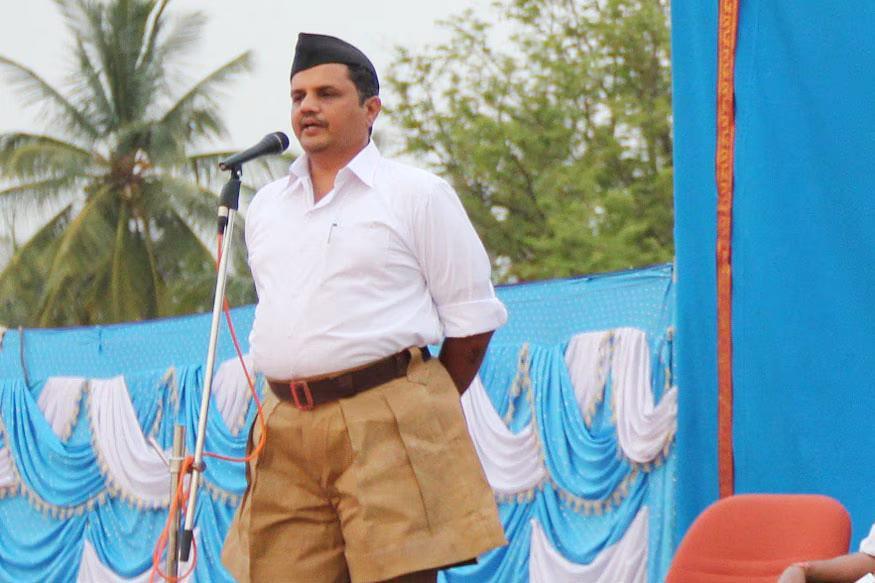
We Prefer Mother-Tongue as Mode of Education: RSS on NEP Row
The controversy surrounding the National Education Policy (NEP) has reached a boiling point, with various stakeholders expressing their concerns and reservations about the three-language policy. Amidst this backdrop, RSS leader CR Mukunda has weighed in on the issue, stating that the organisation prefers the use of mother tongue as a mode of education and day-to-day communication.
Mukunda’s statement is significant, given the RSS’s influence and reach in Indian society. The organisation has historically been a powerful voice in shaping public opinion and policy on various issues. In this context, Mukunda’s remarks on the NEP are noteworthy, as they provide insight into the RSS’s stance on the three-language policy.
According to Mukunda, the use of mother tongue is essential for education and communication. He believes that it promotes unity and helps to bridge the gap between different communities. This argument is not new, and it is a common refrain among those who support the use of mother tongue in education. However, the significance of Mukunda’s statement lies in the fact that it comes at a time when the NEP is being fiercely debated, and opinions are sharply divided.
Mukunda’s statement is also seen as an apparent attack on the DMK’s opposition to the NEP. The DMK has been vocal in its criticism of the policy, accusing the Centre of trying to impose Hindi on non-Hindi speaking states. Mukunda’s remarks, therefore, can be seen as an attempt to counter the DMK’s narrative and defend the NEP.
Furthermore, Mukunda’s statement has also been interpreted as a veiled attack on forces that are challenging national unity. This is a reference to the ongoing controversy over the delimitation of parliamentary constituencies in Jammu and Kashmir. The RSS has been critical of the Centre’s decision to delimit the constituencies, arguing that it is a politically motivated move aimed at dividing the region.
The controversy over the NEP has been sparked by the introduction of the three-language policy. The policy proposes to make Hindi compulsory in non-Hindi speaking states, along with English and the local language. This has sparked widespread protests and opposition, with many arguing that it is an attempt to impose Hindi on non-Hindi speaking states.
The RSS, on the other hand, has defended the NEP, arguing that it is a necessary step towards promoting national integration. The organisation has also argued that the three-language policy is a pragmatic solution to the issue of language diversity in the country.
The debate over the NEP has also been influenced by the ongoing controversy over the delimitation of parliamentary constituencies in Jammu and Kashmir. The Centre’s decision to delimit the constituencies has been opposed by various stakeholders, including the Jammu and Kashmir government and the opposition parties.
The RSS has also been critical of the Centre’s decision, arguing that it is a politically motivated move aimed at dividing the region. Mukunda’s statement, therefore, can be seen as a reflection of the RSS’s concerns over the issue.
In conclusion, CR Mukunda’s statement on the NEP is significant, as it provides insight into the RSS’s stance on the three-language policy. The organisation’s preference for the use of mother tongue in education and communication is a common refrain among those who support the use of mother tongue in education. However, the controversy surrounding the NEP is complex, and opinions are sharply divided.
The RSS’s stance on the issue is also influenced by the ongoing controversy over the delimitation of parliamentary constituencies in Jammu and Kashmir. The organisation’s criticism of the Centre’s decision can be seen as a reflection of its concerns over the issue.
As the debate over the NEP continues, it is essential to engage in a nuanced and informed discussion on the issue. It is also necessary to listen to the concerns of all stakeholders, including the RSS and other organisations that have expressed their views on the issue.
Sources:
https://repository.inshorts.com/articles/en/PTI/673f2f66-2cc6-4178-a4a8-3f73ce77eb19



